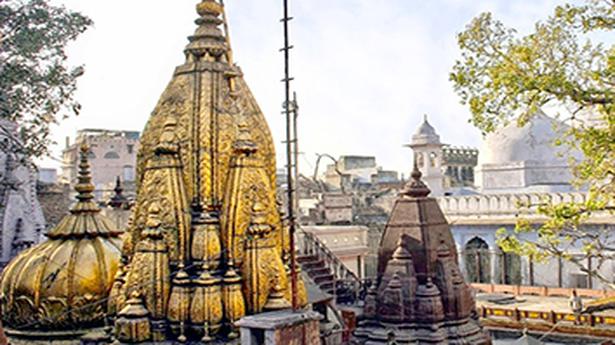
Gyanvapi mosque near Kashi Vishwanath temple not a Waqf property: Counsel for temple
The Hindu
“Gyanwapi Mosque cannot be said to be a Waqf property because it was not dedicated by any legal Waqif after the demolition of the Kashi Vishwanath temple in 1669”
The Allahabad High Court on Thursday resumed the hearing on Varanasi’s Kashi-Vishwanath Temple-Gyanvapi Mosque dispute with the counsel for the temple asserting that the disputed mosque is not a waqf property.
Appearing for the Kashi Vishwanath temple before the bench of Justice Prakash Padia, senior counsel Vijay Shankar Rastogi also asserted that the provisions of the Waqf Act are not applicable to this mosque as it is not a waqf property.
Mr. Rastogi advanced his argument refuting claims by appellants Anjuman Intazamia Masjid of Varanasi and the Sunni Central Waqf Board of Lucknow in their petitions that the mosque was a Waqf Property, a property permanently and irrevocably donated by an eligible, legally constituted ‘Waqif’ (legal donor) for a pious and religious purpose and hence rendered non-transferrable.
Mr. Rastogi, however, argued in the court and also explained later to PTI that the Gyanwapi Mosque cannot be said to be a Waqf property because it was not dedicated by any legal Waqif after the demolition of the Kashi Vishwanath temple in 1669.
There was never any dedication of the property to God or to build a masque by any Waqif after its demolition by its destroyer, Mr. Rastogi said.
Mr. Rastogi also argued that the disputed property was earlier once registered as Waqf Property before the enactment of the Waqf Act, 1995, which provided for the re-registration of the Waqf Property, but it was never done.
Moreover, the earlier registration of the disputed property as a Waqf property did not affect Hindu’s rights over it as the Waqf Act only concerned Muslims, he argued.











